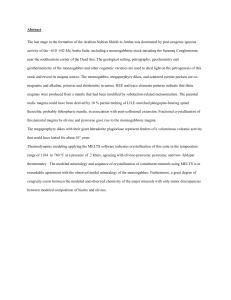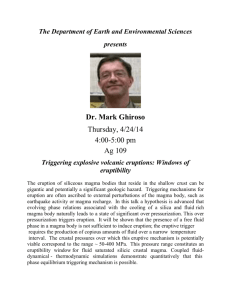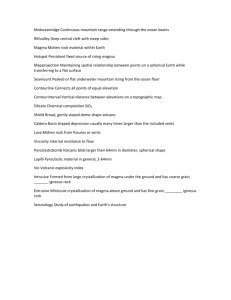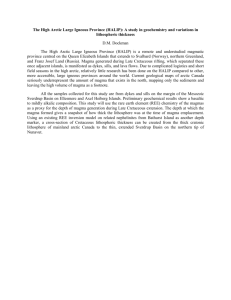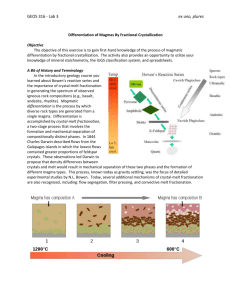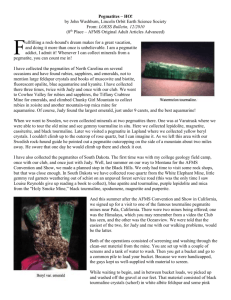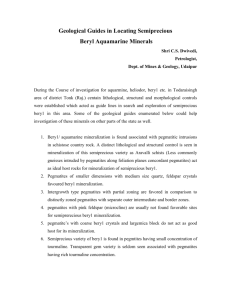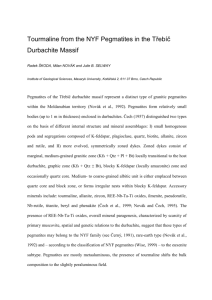iCRAG PhD Tp1.2PhD4 Rare element enrichment processes in LCT
advertisement
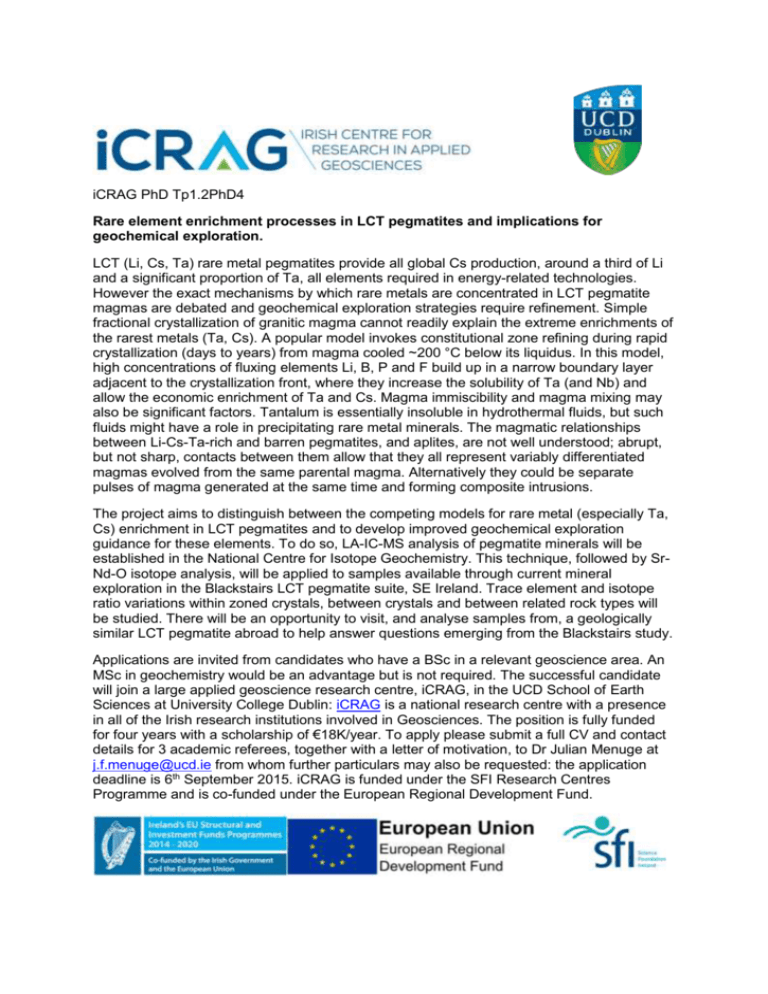
iCRAG PhD Tp1.2PhD4 Rare element enrichment processes in LCT pegmatites and implications for geochemical exploration. LCT (Li, Cs, Ta) rare metal pegmatites provide all global Cs production, around a third of Li and a significant proportion of Ta, all elements required in energy-related technologies. However the exact mechanisms by which rare metals are concentrated in LCT pegmatite magmas are debated and geochemical exploration strategies require refinement. Simple fractional crystallization of granitic magma cannot readily explain the extreme enrichments of the rarest metals (Ta, Cs). A popular model invokes constitutional zone refining during rapid crystallization (days to years) from magma cooled ~200 °C below its liquidus. In this model, high concentrations of fluxing elements Li, B, P and F build up in a narrow boundary layer adjacent to the crystallization front, where they increase the solubility of Ta (and Nb) and allow the economic enrichment of Ta and Cs. Magma immiscibility and magma mixing may also be significant factors. Tantalum is essentially insoluble in hydrothermal fluids, but such fluids might have a role in precipitating rare metal minerals. The magmatic relationships between Li-Cs-Ta-rich and barren pegmatites, and aplites, are not well understood; abrupt, but not sharp, contacts between them allow that they all represent variably differentiated magmas evolved from the same parental magma. Alternatively they could be separate pulses of magma generated at the same time and forming composite intrusions. The project aims to distinguish between the competing models for rare metal (especially Ta, Cs) enrichment in LCT pegmatites and to develop improved geochemical exploration guidance for these elements. To do so, LA-IC-MS analysis of pegmatite minerals will be established in the National Centre for Isotope Geochemistry. This technique, followed by SrNd-O isotope analysis, will be applied to samples available through current mineral exploration in the Blackstairs LCT pegmatite suite, SE Ireland. Trace element and isotope ratio variations within zoned crystals, between crystals and between related rock types will be studied. There will be an opportunity to visit, and analyse samples from, a geologically similar LCT pegmatite abroad to help answer questions emerging from the Blackstairs study. Applications are invited from candidates who have a BSc in a relevant geoscience area. An MSc in geochemistry would be an advantage but is not required. The successful candidate will join a large applied geoscience research centre, iCRAG, in the UCD School of Earth Sciences at University College Dublin: iCRAG is a national research centre with a presence in all of the Irish research institutions involved in Geosciences. The position is fully funded for four years with a scholarship of €18K/year. To apply please submit a full CV and contact details for 3 academic referees, together with a letter of motivation, to Dr Julian Menuge at j.f.menuge@ucd.ie from whom further particulars may also be requested: the application deadline is 6th September 2015. iCRAG is funded under the SFI Research Centres Programme and is co-funded under the European Regional Development Fund.
